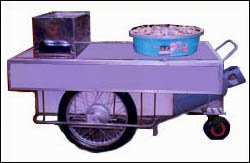Oranckay got there first, apparently as a consequence of a posting in The List, to tell that an English translation of a novel from 1931 by Yom Sang-seop, "Three Generations" (三代/Samdae) will be published in English and that it's required reading for all interested in modern Korea. Three Generations, first published as a serial in Chosun Ilbo is about - three generations in the colonial Korea. An educational site Koreannote has a good introduction of the book and the storyline in Korean, made to prepare Korean highschoolers for the graduation exam. The three generations are the grandfather Cho Ûi-gwan, a traditionally-minded landowner who buys himself a lineage genealogy (chokpo) to go for a yangban; the father Cho Sang-hun, who has accepted the new things as his own but still lives by wasting the family fortune; son Cho Tôk-ki, who has a good character but is caught in the discord between the father and grandfather and lives an irresolute (uyubudanhada) life.
Let's quote from the publisher's site:Three Generations charts the tensions in the Jo family in 1930s Japanese-occupied Seoul. Yom’s keenly observant eye reveals family tensions with profound insight. His characters are so alive that if you cut the pages they might bleed. Delving deeply into each character’s history and beliefs, he illuminates the diverse pressures and impulses driving each one. This Korean classic also brings forth the larger issues at hand, revealing Korea’s situation under Japanese rule, the traditional Korean familial structure, political movements of the 1930s (both national and international), and the battle between the modern and the traditional. Touted as one of Korea’s most important works of fiction, Three Generations gave birth to naturalism in Korean literature. Best representing the Seoul dialect of the time, Yom is celebrated even today for his contributions to Korean literature; Three Generations remains a mandatory read for high school students. The long-awaited publication of this masterpiece is a vital addition to canonical Korean literature in English.
ISBN 0-9749680-0-5
cloth $30
Release date: March 2005 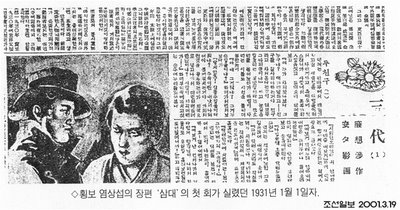
The first part of "Three Generations" published in Chosun Ilbo in January 1, 1931 (linked from an education site Koreannote) Seems that the illustrations were done An Sôk-chu, here appearing as An Sôk (安夕), whose illustrated writings (manmun manhwa) from the 1930s were the subject of Sin Myông-jik's Modôn ppoi Kyôngsôngûl kônilda, a study of the images of modernity in the colonial Korea (see the sidebar for the book cover).
And finally, let's quote from the same Koreannote page a passage from the first part which is in the picture above, "Two Friends", to see what Yom's prose is like and if I could cope with the Korean original:두 친구
덕기는 안마루에서, 내일 가지고 갈 새 금침을 아범을 시켜서 꾸리게 하고 축대 위에 섰으려니까, 사랑에서 조부가 뒷짐을 지고 들어오며 덕기를 보고,
"얘, 누가 찾아왔나 보다. 그 누구냐? 대가리꼴 하고 . 친구를 잘 사귀어야 하는 거야. 친구라고 찾아온다는 것이 왜 모두 그 따위뿐이냐? "
하고 눈살을 찌푸리는 못마땅하다는 잔소리를 하다가, 아범이 꾸리는 이불로 시선을 돌리며, 놀란듯이
"얘, 얘, 그게 뭐냐? 그게 무슨 이불이냐?"
하며 가서 만져 보다가,
"당치 않은! 삼동주 이불이 다 뭐냐? 주속이란 내 낫세나 되어야 몸에 걸치는 거야. 가외 저런 것을, 공부하는 애가 외국으로 끌로 나가서 더럽혀 버릴 테란 말이냐? 사람이 지각머리가 ."
하며, 부엌 속에 쪽치고 섰는 손주며느리를 쏘아본다.
덕기는 조부의 꾸지람이 다른 데로 옮아간 틈을 타서 사랑으로 빠져 나왔다. 머리가 덥수룩하고 꼴이 말이 아니라는 조부의 말눈치로 보아서 김병화가 온 것이 짐작되었다.
"야아, 그러지 않아도 저녁 먹고 내가 가려 하였었네."
덕기는 이틀 만에 만나는 이 친구를, 더욱이 내일이면 작별하고 말 터이니만치 반갑게 맞았다.
"자네 같은 부르주아가 내게까지! 자네가 작별하려 다닐 데는 적어도 조선 은행 총재나 ."
병화는 부옇게 먼지가 앉은 외투 주머니에 두 손을 찌른 채 딱 버티고 서서 이렇게 비꼬는 수작을 하고서는 껄껄 웃어 버린다.
"만나는 족족 그렇게도 짓궂게 한 마디씩 비꼬아 보아야만 직성이 풀리겠나? 그 성미를 좀 버리게."
덕기는 병화의 부르주아, 부르주아 하는 소리가 듣기 싫었다. 먹을 게 있는 것은 다행하다고 속으로 생각지 않은 게 아니나, 시대가 시대이니만치 그런 소리가 ---더구나 비꼬는 소리는 듣고 싶지 않았다.
"들어가세."
"들어가선 무얼 하나. 출출한데 나가세그려. 수 좋아야 하루에 한 끼 걸리는 눈칫밥 먹으러 하숙에 기어들어가고도 싶지 않은데 . 군자금만 대게. 내 좋은 데 안내를 해 줄게!"
"시원한 소리 한다. 내 안내할게 자네 좀 내 보게."
하며, 덕기는 임시 제 방으로 쓰는 아랫방으로 들어갔다.
"여보게, 담배부터 하나 내게. 내 턱은 그저 무어나 들어오라는 턱일세."
하며, 병화는 방 안을 들여다보고 손을 내밀었다.
"나 없을 땐 온통 담배를 굶데그려."
덕기는 책상 위에 놓인피전갑을 들어 내던지며 웃다가,
"그저 담배 한 개라도 착취를 해야 시원하겠나? 자네와 나와는 착취, 피착취의 계급적 의식을 전도시키세."
하며 조선옷을 훌훌 벗는다. (제1장 발단부)
Categories at del.icio.us/hunjang: books ∙ literature/movies ∙ contemp.history ∙ modernization |
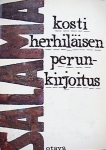


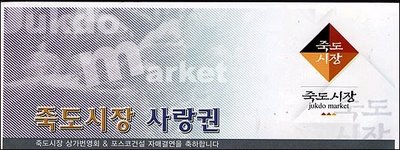
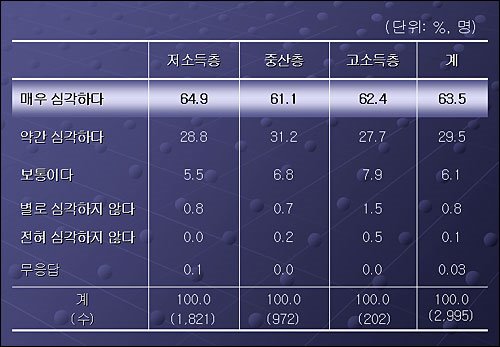
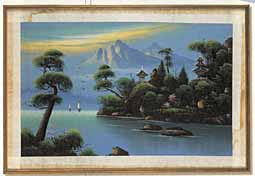
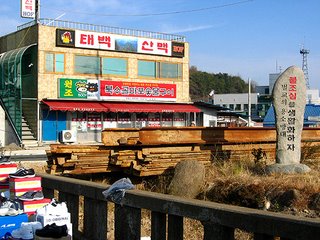


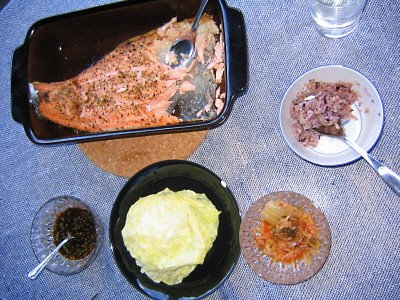 It's delightful to have been included in the blogroll of such a fine blog as
It's delightful to have been included in the blogroll of such a fine blog as 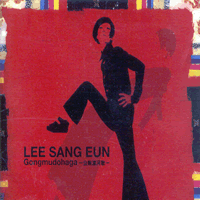

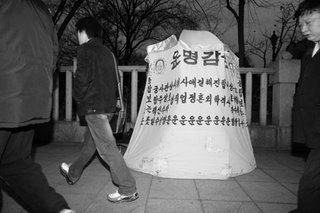

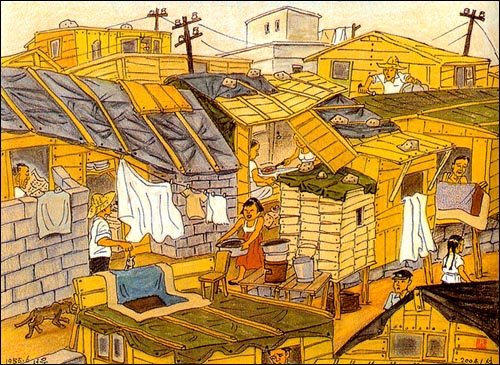
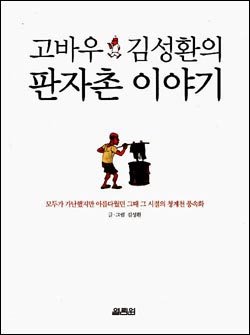 From the Ohmynews interview of the artist:
From the Ohmynews interview of the artist: icon in the page to go to the gallery).
icon in the page to go to the gallery).
